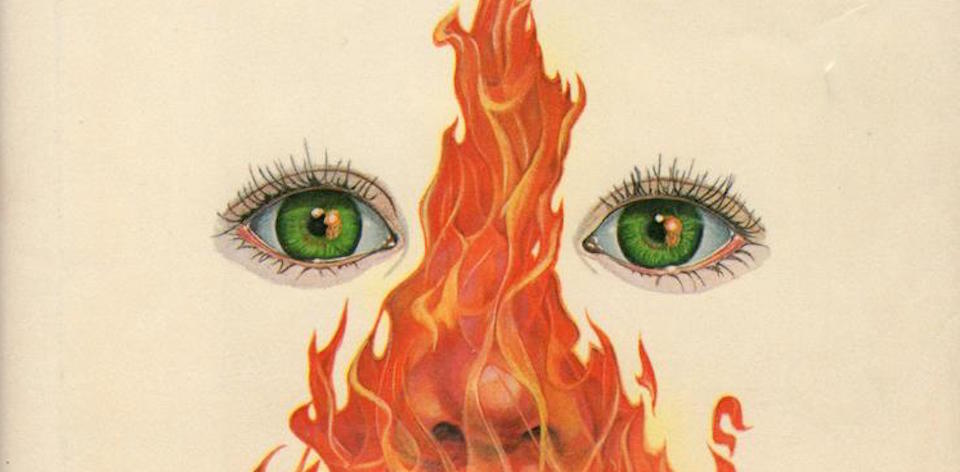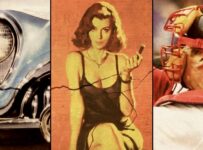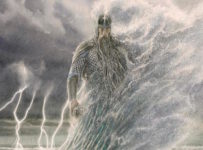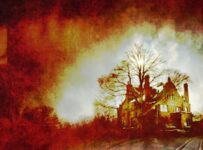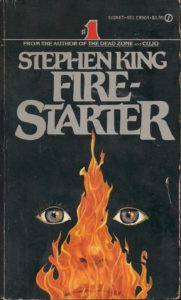
Welcome to the feature column that explores a decent number of Stephen King’s books in the order they were published! (More or less!)
Here’s a little secret origin story. This Stephen King reading project began when my buddy Batrock and I decided to read all of The Dark Tower books and major connections a few year ago.
Following that, this gap-filling read of the other 30+ books has given a great deal of perspective on King’s writing. On the one hand, we can see how our friend Stephen’s writing progressed over time but also how these earlier stories relate to everything from Carrie to the Bill Hodges trilogy and beyond.
FIRESTARTER has a lot in common with King’s other work. His first published novel was about a young girl with documented mental abilities and the relationship she had with her mother. An equally reductive view of this book is that it’s about a girl with pyrokinesis and her father’s paternal protective instincts. Much of the novel is concerned with young Charlie, the titular firestarter, and The Shop: the nefarious organisation they are running from.
It might be this sharp familiarity of plot or the long walkup to the gripping final act but this wasn’t one of the more engaging King novels for me. The solid relationship between Charlie and her dad Andy (who has his own abilities thanks to an LSD like substance) is certainly more healthy than that between Carrie and her mother. As such, the young girl with the mental kindling gets her moral compass from a variety of sources. There’s the kindly country family who takes them in, Charlie’s deceased mother, and Rainbird: the native American employer who works from The Shop.
Rainbird’s obsession with Charlie borders on the ickier side of King’s human villains, although much of his fascination comes from a desire for power than anything else. It’s the way he goes about winning her over that put him in the running for one pf the creepiest characters in the King Multiverse. Charlie is eight years old, but often written as carrying the wisdom of a child three or four times that age. King mentions in the afterword that he used his own children as an inspiration for her characterisation, and it is a nice change to see a child written that has her own sense of agency.
There’s files and transcripts that are reminiscent of Carrie’s formatting as the book barrels towards its ridiculously fast final 30%, and it’s not hard to imagine that The Shop (inspired by A. E. van Vogt) is the organisation that studied Carrie White from the not-too-distant future. Or led to further experimentation with Brady Hartsfield in End of Watch. After all, they are implied to be involved in The Mist and outright mentioned in The Stand two years earlier. It’s all just further evidence of the swirling morass of themes and recurring motifs that ultimately formed one of the most complex literary empires of the last half-century.

